Review: The Raft (2018), by Marcus Lindeen
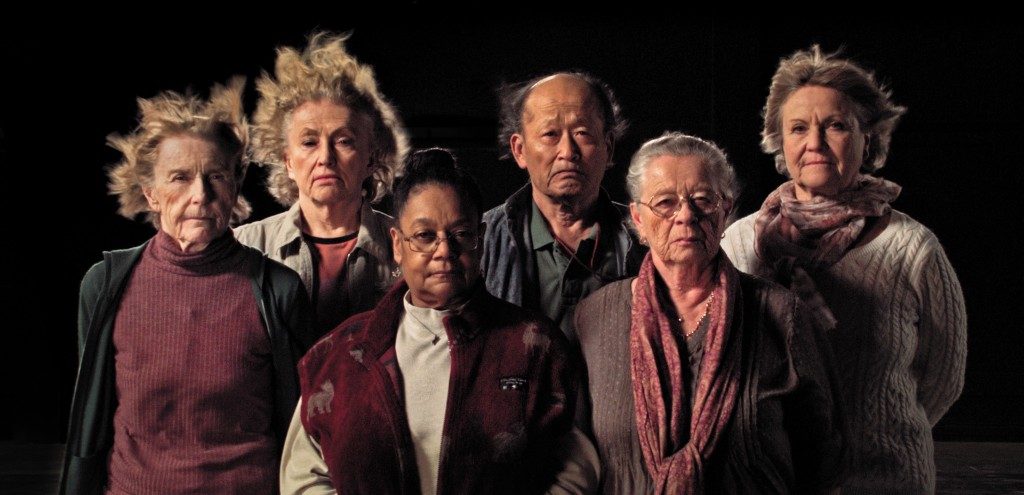
With his documentary The Raft which scooped the DOX:Award at the CPH:DOX in 2018, Swedish director Marcus Lindeen is breaking the myth of Santiago Genovés’ controversial experiment that took place in 1973. This adventure that almost looks as an early draft for the reality show “Get me out of here, I’m a celebrity”, was ground-breaking in proving the science wrong in presumption that – like in the case of apes – “most conflicts are about sexual access to ovulating females”, but it couldn’t shake its reputation as “the sex raft” for a very long time, even if it wasn’t anything like it.
Barely a year before his project kicked off, Génoves was flying to Mexico City from an anthropological conference on history of violence, when suddenly a group of terrorists took over the flight: “Imagine the irony, me the scientist who has spent all his career studying the violent behaviour ended up in the middle of a hijacking drama”, he says at the beginning of the film. Obsessed with what he went through, he wanted to recreate a dangerous, and yet isolated space where he would study the patterns of violence with living subjects. His draft for the radical research of reasons behind human violent behaviour started taking its shape, and in an attempt to find an ultimate answer to question what leads people to fight, the Mexican anthropologist created what he believed to be the ideal place of conflict. The raft, or “the floating laboratory” was baptised Acali, which in ancient Mexican language meant “a house on water”. It was designed by Genovés and developed together with a group of experts.
In summer 1973, ten international volunteers (five men and five women) who were selected based on very strict criteria (all sexually attractive, among other things), boarded Acali in Las Palmas on Canary Islands. They were to drift 5000 miles over the ocean for three months, without the possibility of changing their minds and leave. Despite his alleged openness regarding the new progressive changes related to gender equality, Genovés proved to be anything but open with the passing time, his jealousy and prejudice being the only initiators of (verbal) conflict on the raft, initiated by his own decision of giving women leadership roles. He couldn’t digest being outsmarted by a female captain and a female scuba-diver, who were simply better qualified to save the vessel from storms and dangers lurking from the ocean’s depth. The power- game he eventually lost against Maria Björnstam, the first woman in the world with a degree as a professional sea captain, was such an ego-kill that he didn’t recover from it until the end of the experiment. In an archive footage shown in the film, he is seen broken mentally and sulking like a child underdeck, rather pretending to be sick than admitting he was beaten at his own game.
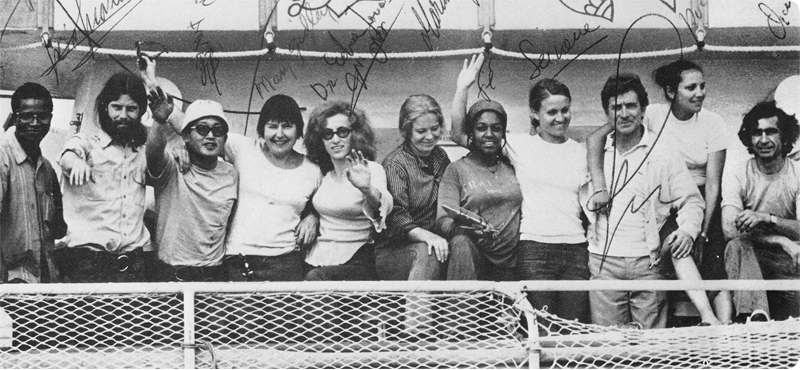
The documentary is narrated by the Mexican actor Daniel Giménez Cacho (recently seen in the lead role in Lucretia Martel’s Zama) who speaks in words of Genovés, reading his diaries and notes in a manner of a man deeply sunken in his thoughts. The voice falls in its place by fitting into every scene from the archive footage swiftly edited by Alexandra Strauss & Dominika Daubenbüchel. Cacho becomes the scientist who selects his candidates by estimating their level of attractiveness or fragility – for instance, all women had to be married or in stabile relationships and with children, just to increase the joy of their potential failing. He is also the men whose pettiness becomes unbearable when the subjects fail to tear each other’s heads off, choosing to live a harmonious community life instead. Cacho slips in the skin of a man who decided to intervene and break the peace by making the answers from his questionary public. That plan didn‘t quite work – the sentiment of betrayal started growing and people began to fantasise about doing him in: „Smalltalk and conversation can quickly escalate into action“, as one of the team members admits in the film. The viewer becomes convinced that it is Genovés talking to them, and the illusion is almost perfect.
Barely using talking heads and leaning on the archive footage and the exchange of memories between the seven former participants in the experiment (three have passed away), Lindeen connects the past with the present by letting the past come to life in an exact replica of the infamous raft. The ghastly construction is on dry land this time, and the people boarding it are freed from pressure to behave in certain manner. At least, they are not deprived of privacy unlike in the 1973 when even a toilet was exposed at the very visible spot, forcing the rafters to use it in the face of others. Women remember their dread of sharks during periods, but also how rewarding the splashing of the waves was with bare buttocks over the water.
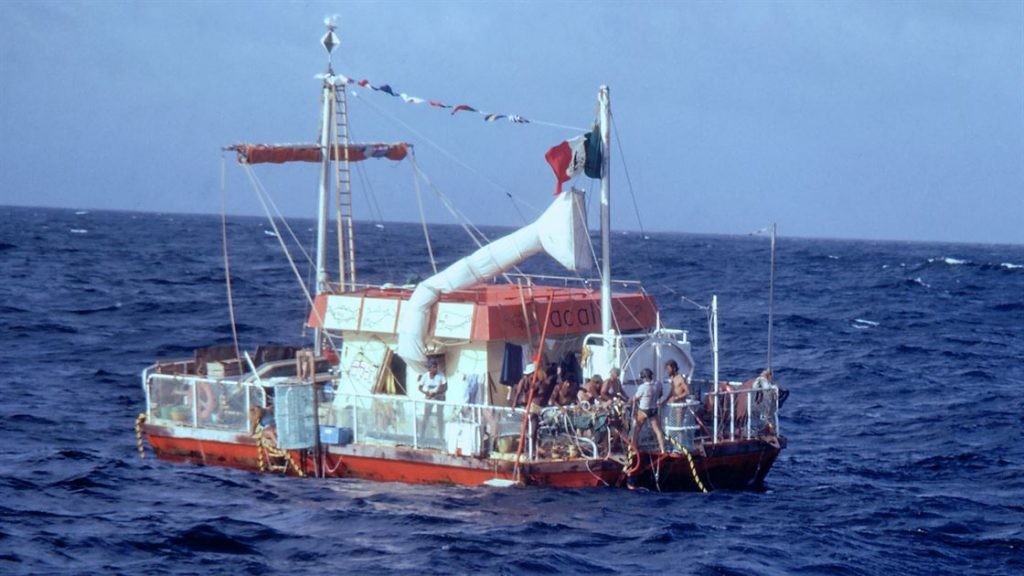
As they look back at the three months of dangerous drifting across the ocean, the seven people reflect upon the experiment and the man behind it. The group was of different races, religion and social backgrounds, what Genovés considered a “microcosm of the world”. On board were the captain Maria Bjürnstam, African-American engineer Fé and the waitress from Alaska Mary, the Japanese photographer Eisuke, a scuba-diver Servane and the ecologist Rashida (both from France), the Israeli doctor Edna, the Angolan catholic priest Bernardo Bongo, José María Montero Pérez (anthropologist from Uruguay) and the radio-operator from Cyprius Charles Anthony.
The film was produced by Eric Gandini (Fasad) and coproduced by Vibeke Vogel (Bullit Films) and Ingmar Trost (Sutor Kolonko) , With support from Catapult Film Fund, Creative Europe media programme and Sundance Institute Documentary Film Program.
Production: SE/DK/US/D
Production Year: 2018
Length: 97 min
Language: French, English, Spanish, Japanese, Swedish and German
Format: DCP-2K, 2:39 Scope, colour
Directed by: Marcus Lindeen
Cinematography: Måns Månsson
Production Design: Simone Grau Ronez
Music: Hans Appelqvist
Editing: Alexandra Strauss & Dominika Daubenbüchel
Sound Design: Hans Møller
Music: Hans Appleqvist
Cast: Maria Björnstam, Daniel Giménez Cacho, Servane Zanotti, Rachida Lièvre, Eisuke Yamaki, Fé Seymour, Mary Gidley and Edna Reves
World Sales: Wide House











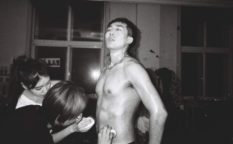
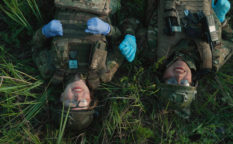

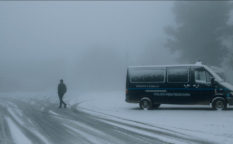
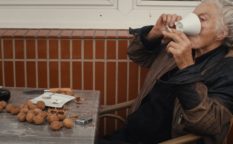
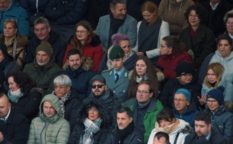
2020-04-16 @ 04:38
hello whre i can watch this movie?